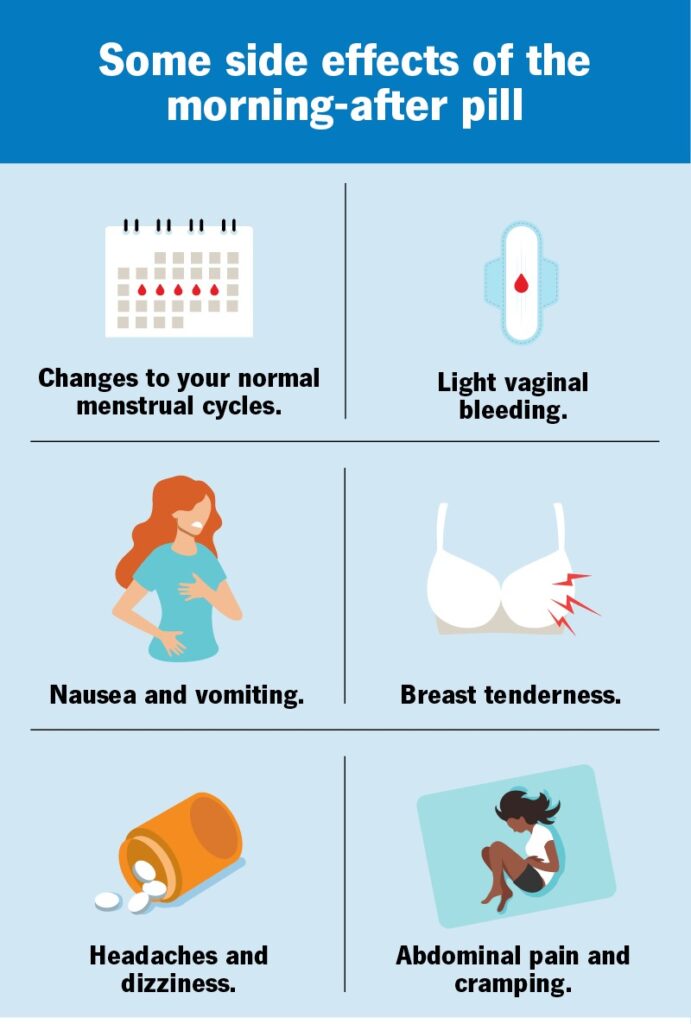The morning-after pill is a type of emergency contraception. Emergency contraception isn’t the same as typical birth control. It’s for situations where your birth control has either failed or you were unable to use protection. These medications are a temporary way to prevent pregnancy — they aren’t long-term routine forms of birth control. There are better and more effective ways to prevent pregnancy, like birth control pills, intrauterine devices (IUDs), and implants.
Some situations where you may need the morning-after pill are:
- Having sexual intercourse without any form of preventive birth control.
- Experiencing birth control failure (like a broken condom, forgotten birth control pills, or missed dose of the birth control shot).
- Experiencing nonconsensual or forced sexual intercourse (rape).
The most important thing to know about emergency contraception is that how soon you take it has a big impact on how effective it is. Each type of morning-after pill has its timeframe for when you should take it, but studies show that both types work best when you take them within 24 hours of unprotected sex.
Are there different types of morning-after pill?
There are two main types of morning-after pills approved by the FDA in the U.S. — each with popular brand names you may have heard of. Both types come as pills that you swallow. A third, less common type of emergency contraception involves taking a combination birth control.
What are the reasons the morning-after pill fails?
The most common reason for failure is timing. It’s always best to take emergency contraception as soon as possible. Other possible reasons for failure include:
- Vomiting within two hours of taking it
- Weight (levonorgestrel may be less effective if you are overweight)
- Interaction with other medications makes it less effective (like certain barbiturates or St. John’s wort)
Can weight impact the effectiveness of the morning-after pill?
There’s research that suggests that your weight can impact how effective the levonorgestrel morning-after pill will be for you. People with a higher body mass index (BMI) may not experience the same level of effectiveness. Pills containing ulipristal appear to be effective regardless of a person’s BMI.
Is there bleeding after I take the morning-after pill?
You might experience light bleeding — called spotting — after taking emergency contraception. Even though this doesn’t happen to everyone who takes the morning-after pill, it isn’t something that should worry you. If you notice that the bleeding is heavier or happens after you’ve missed a period, reach out to your healthcare provider.

Can the morning-after pill make your period late or disrupt your cycle?
The morning-after pill can cause your next period to be irregular. If your period is late or abnormal, contact your healthcare provider and consider taking a home pregnancy test. Your provider will advise you on your next steps if your menstrual cycle doesn’t return to normal.
What are the signs that the morning-after pill didn’t work?
If you take the morning-after pill in the immediate time window after having unprotected sex, it can be very effective. One of the main signs that a morning-after pill hasn’t worked is a missed menstrual period. If your period is more than seven days (a week) later than you expected, take a pregnancy test.
Does the morning-after pill work if I take it first and then have unprotected sex?
The morning-after pill was made to be taken after unprotected sex. It’s not effective if you take it before you have unprotected sex.




